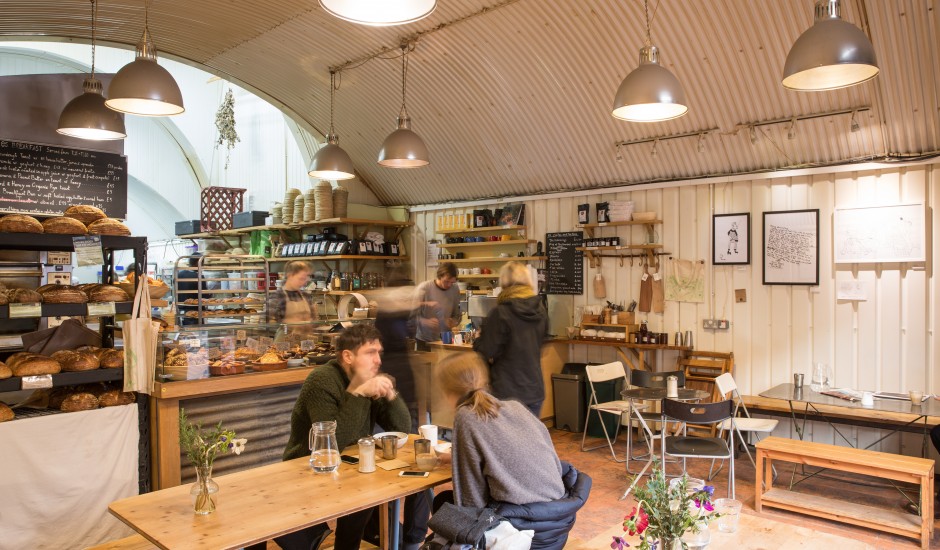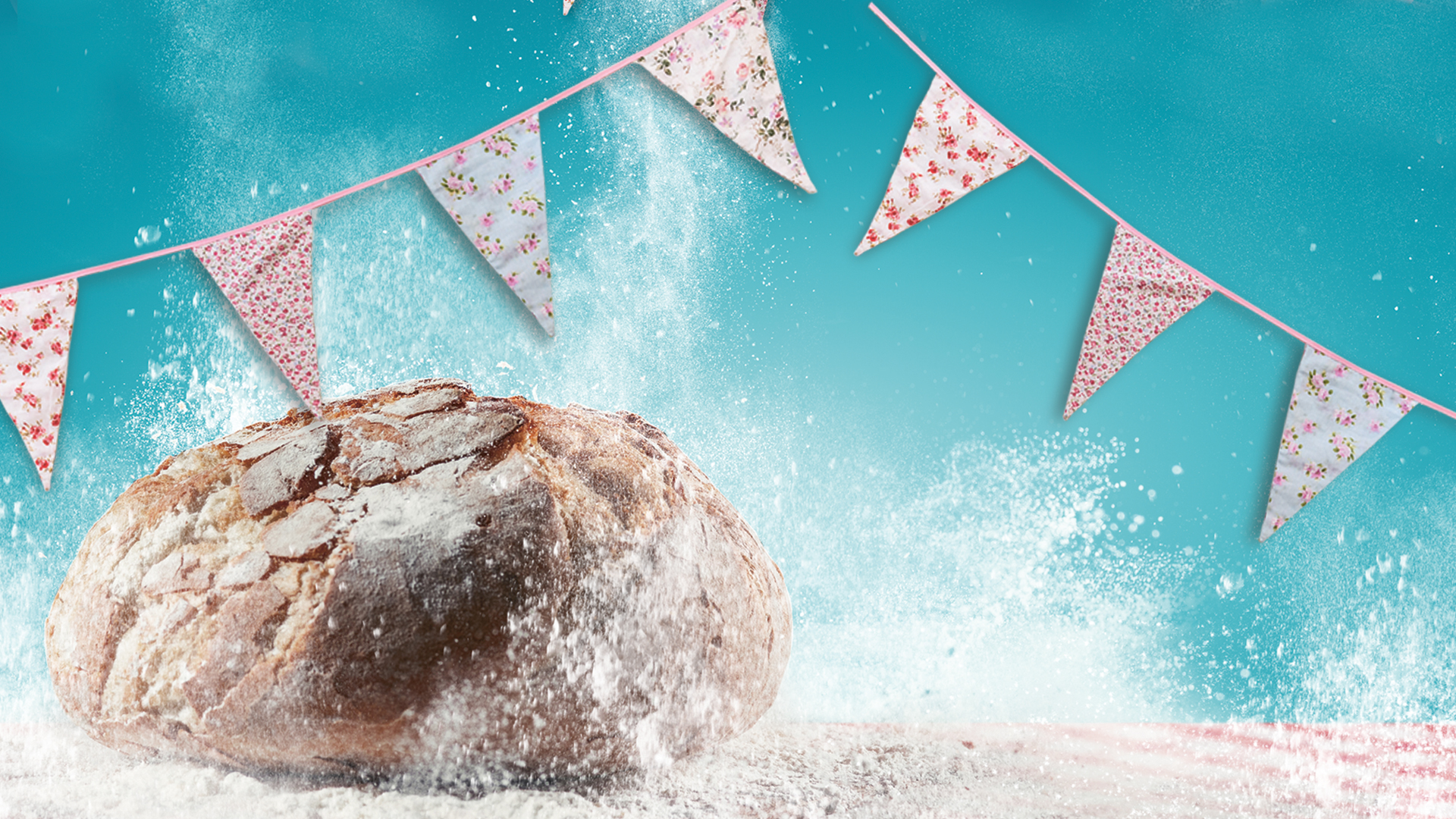Bake Off’s impact has been increasingly clear. For an hour each week, social media overflows with photographs of fresh bread, cakes and pastries out of focus in the glare of the TV behind them. Viewers are getting their first taste of high-quality baked goods through the show then want to seek them out. Supermarkets report a huge spike in sales of home baking goods in the run up to each Bake Off season. John Lewis announced that the demand for kitchen equipment and cookbooks skyrocket as much as 50 per cent.
Charles Banks, co-founder of culinary trend experts The Food People, got it right when he predicted that in 2018, bread, with a luxurious edge, would be king. “It’s all about those that are crafted, have heritage and time put in to them. It’s ancient grains and sourdoughs and artisan pastas,” he raved.
We either give way and become ever more spoon-fed by dogma that informs us of our choices, or we take matters into our own hands. Bread really symbolises that
Fiona McSwein, chief customer officer at Simply Business, has recorded the Bake Off impact into start-ups.
“We have witnessed a significant rise in independent bakeries across the UK in recent years,” she says. “As customers turn away from supermarket behemoths in favour of artisanal products from local producers, there has a been an uplift in savvy entrepreneurs using their kitchen skills to meet these changing consumer needs.
“The Great British Bake Off has slowly but surely emerged to become a national institution,” she adds. “It reminds viewers of the variety and versatility of breads, cakes and biscuits, the personality, talent and graft of the bakers behind them and highlights the poorer quality of mass-produced treats. Bakeries seem to be a recipe for success for the nation’s start-ups.”
The collective nature of shared experience that Bake Off promotes has fired another key element. This growing breadbasket of independent bakeries is populated by people with a passion for making a positive difference in communities alongside their desire to make nice bread.
Advertising helps fund Big Issue’s mission to end poverty
“We’re at quite a big juncture,” MacKinnon says. “We either give way and become ever more spoon-fed by dogma that informs us of our choices, or we take matters into our own hands. Bread really symbolises that. It’s a metaphor for where we are.”
A New Economics Foundation study found that local suppliers of products like bread re-spend 76 per cent of their income locally, external suppliers only 36 per cent.
Eyal Schwartz, E5’s head baker, was a neuroscientist before switching brain power for flour power. Many of the country’s independent bakeries were founded by young adults like MacKinnon who grew tired of corporate careers.
“They’ve seen how that world operates and are ready to strike off on their own into something that allows them a little more creativity,” he says.
This April, bread sales were on the up for the first time in three years
Independent business in general is growing, with data released by the British Independent Retailers Association showing that standalone shops are popping up at an increasing rate, while national chains continue to suffer and downsize (Greggs being one of the only high street exceptions). In the past month, retailers including Homebase and House of Fraser have announced dozens of closures across the UK. Consumer experts Which? say the high street could be saved if it becomes a “social hub” in the future. This, combined with the customers seeking out experiential, community-driven businesses, means independent bakeries are key.
But is that independent spirit enough? A question remains over cost. For example, E5’s home-milled flour costs nearly four times that used by large companies. New bakeries are becoming more widely available and producing high-quality, healthier goods – this is not mass market.
Advertising helps fund Big Issue’s mission to end poverty
The National Living Wage (NLW) falls short of providing a basic income for working families, austerity continues to push people into poverty and demand for foodbanks is at a record high. A Child Poverty Action Group study revealed that, on average, a single parent working full time for the NLW earns £74 less than would be necessary to provide a basic, no-frills lifestyle to their children. In support of this, a recent report by the Joseph Rowntree Foundation found that low-income families are significantly worse off now than they were 10 years ago. Four-pound loaves are not an option for those living on the breadline.
Bake Off has encouraged people to buy better bread
This April, bread sales were on the up for the first time in three years after slumping under the popularity of carb-free and gluten-free diet trends. With poor families growing poorer, some could be relying more on filling foods like bread. It’s also worth noting that the additives in cheap loaves derided by foodies keep the bread edible for longer.
Jane Beedle, a finalist from Bake Off’s seventh series, is one of the ex-contestants who gives Bake With A Legend classes, allowing amateurs the chance to share a counter with the bakers who inspired them. She believes bread brings people together: “Even if people aren’t necessarily baking it, they really appreciate good bread. Most people aren’t going to be making their own sourdough. But Bake Off has encouraged people to buy better bread – if not all the time then certainly when they want to spoil themselves a bit.
“It really depends which end of the socio-economic spectrum you come from, because people at the lower end are not going to be able to afford to buy sourdough,” she adds. “These artisan breads are not cheap. But on the whole, I think people now know what a sourdough is, whereas five years ago that wouldn’t have been the case.”
Back in the E5 Bakehouse, MacKinnon acknowledges that economic circumstances can put limitations on consumers. “We try to counter that by selling half-price loaves the next day or smaller ones for a pound.” He emphasises that the £4 charged for their Hackney Wild or Wholemeal Miche covers good wages and perks for staff, the higher cost of sustainable energy, and compensates farmers well for the high-quality wheat.
Advertising helps fund Big Issue’s mission to end poverty
For the booming artisanal bakery business, micro-business also means micro-margins.
The Great British Bake Off is available on Tuesdays at 9pm on Channel 4 and is also available to watch on 4OD
e5bakehouse.combakewithalegend.com










